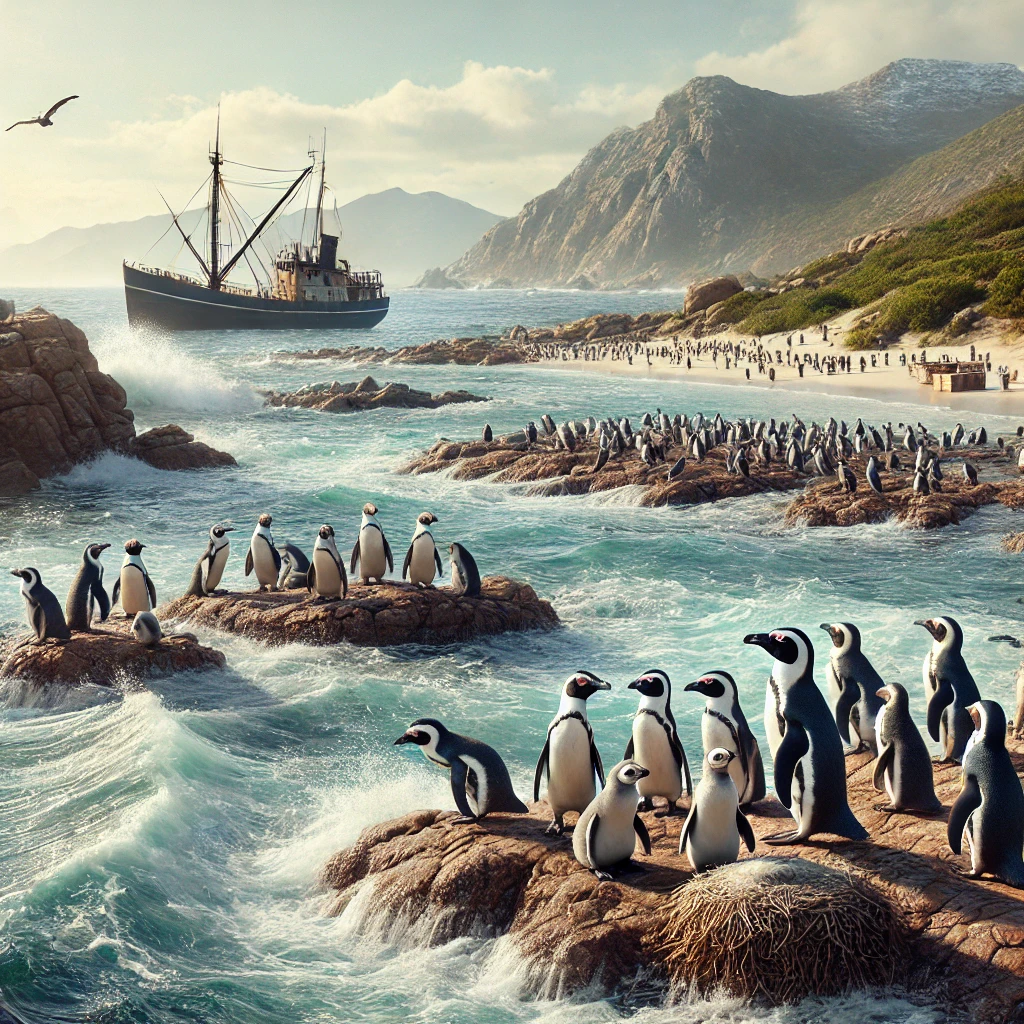SA Ramps Up Conservation Efforts as African Penguins Face Extinction
The African penguin (Spheniscus demersus), fondly nicknamed the “jackass penguin” due to its donkey-like bray, is found only along the southern African coastline.

- Country:
- South Africa
As the global community observes World Penguin Day on April 25, South Africa has seized the moment to spotlight one of its most pressing conservation challenges: saving the critically endangered African penguin. With the national population reduced to fewer than 9,000 breeding pairs, urgent and decisive action has become the rallying call for the country’s environmental leadership.
A Crisis for a National Icon
The African penguin (Spheniscus demersus), fondly nicknamed the “jackass penguin” due to its donkey-like bray, is found only along the southern African coastline. Despite being a charismatic emblem of South Africa’s rich marine biodiversity, this unique seabird is teetering on the edge of extinction. The causes are multifaceted and deeply interlinked—climate change, depleted fish stocks due to overfishing, devastating oil spills, and rising levels of underwater noise pollution have all contributed to a staggering population decline.
“This species faces critical complexities, with fewer than 9,000 breeding pairs remaining in South Africa, earning them a critically endangered status,” said Minister of Forestry, Fisheries and the Environment, Dr. Dion George. “Yet, we are taking bold action to reverse this trajectory.”
Legal Victory: No-Fishing Zones Around Key Penguin Colonies
One of the most pivotal recent developments came in March 2025, when a landmark court-supported agreement was reached between the government, conservation groups, and the fishing industry. This agreement—heralded as a milestone in marine conservation—establishes biologically significant no-fishing zones around six crucial penguin breeding locations: Dassen Island, Robben Island, Stony Point, Dyer Island, St Croix Island, and Bird Island.
These sites collectively support 76% of South Africa’s African penguin population.
“These 12-mile fishing closures around Robben Island and Bird Island, and tailored restrictions at the other colonies, are scientifically informed and designed to ensure sardine and anchovy availability—the main food sources for penguins—over the next decade,” said George. “This collaborative framework balances ecological preservation with the economic realities of the fishing industry.”
Confronting the Threat of Bunkering in Algoa Bay
Perhaps the most harrowing case study is St Croix Island in Algoa Bay, once the largest African penguin colony globally. The unchecked growth of ship-to-ship fuel transfers, known as bunkering, led to chronic oil pollution and acoustic disturbances. These activities devastated the local penguin population.
In 2023, a pause in bunkering activities led to signs of slight recovery, prompting the Department of Forestry, Fisheries, and the Environment (DFFE) to take further action.
“We are advancing stricter bunkering regulations to permanently restrict such activities in ecologically sensitive areas. This is essential to prevent further declines and to allow for the species' recovery,” George explained.
Bolstering Long-Term Conservation Strategy
The government’s conservation blueprint does not stop at reactive measures. It involves a comprehensive, long-term approach:
-
Expanding Marine Protected Areas (MPAs): These zones are crucial to rebuilding fish stocks, not only for penguins but for the broader marine ecosystem.
-
Supporting SANCCOB and Other Partners: The Southern African Foundation for the Conservation of Coastal Birds (SANCCOB) plays a vital role in rescuing and rehabilitating injured penguins. The government continues to fund their operations and celebrate symbolic success stories, such as the recent release of a rehabilitated penguin named Hope.
-
Investing in Scientific Research: Ongoing ecological monitoring, tracking technologies, and predictive modelling are being employed to better understand penguin behavior, migration, and breeding patterns under climate stress.
A National Call to Action
“As we mark World Penguin Day, I call on all South Africans to join us in protecting these remarkable creatures,” said George. “Their survival is a mirror of the health of our oceans, and a testament to our national will for a sustainable future.”
In classrooms, nature reserves, and policy circles alike, awareness campaigns are ramping up to foster a new generation of conservation stewards. Visitors to colonies at Boulders Beach and Stony Point are encouraged to support eco-tourism efforts that fund penguin protection while ensuring minimal disturbance to the animals.
The African penguin is not merely a bird—it is a bellwether for ocean health, a national treasure, and a species that, with united effort, can still be saved. South Africa’s renewed commitment, driven by science, partnerships, and legal protections, offers hope that future World Penguin Days will celebrate not the brink of extinction, but the revival of one of the country’s most beloved seabirds.










